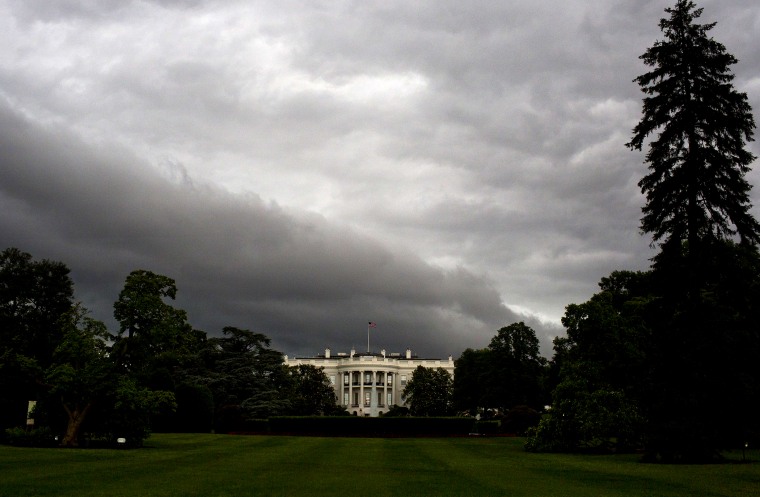The leverage part of Donald Trump's Ukraine scandal has already come into sharp focus. The publicly available information makes clear that the president and his team tried to extort a vulnerable ally, withholding military aid unless Ukraine agreed to help Trump's domestic political scheme.
What's less understood is the process through which the Republican and his operation withheld the aid in the first place. With this in mind, the U.S. House yesterday released two more deposition transcripts, including one from Mark Sandy, the deputy associate director for national security programs at the White House Office of Management and Budget (OMB).
To put it mildly, Sandy, the first OMB official to testify as part of the congressional impeachment inquiry, gave lawmakers some important insights that we did not previously know.
Mark Sandy, a career staffer in the White House Office of Management and Budget, told impeachment investigators that two budget staffers left the agency after expressing frustrations about the unexplained hold on Ukrainian aid, according to new closed-door transcripts released Tuesday.Sandy said that one staffer, who worked in OMB's legal office and whose name was undisclosed, told him they were leaving the agency, at least in part, because of their concerns regarding the hold on Ukraine security assistance.
As the scandal has unfolded, there's been considerable debate about the seriousness of the allegations and the degree to which they meet constitutional standards for impeachment. But these latest details lead to different questions: what prompted Trump to put a hold on the congressionally approved military aid and was that legal?
Mark Sandy's testimony sheds light on both lines of inquiry.
He told investigators, for example, that two OMB officials who left the department believed the president's scheme was at odds with the Impoundment Control Act, a relatively obscure federal law that dictates how the executive branch allocates federal funds.
In other words, Congress appropriated military aid for Ukraine, which obligated the Trump administration to disperse those funds. Except in this case, Trump didn't -- because he wanted to use those funds to extort officials in Kyiv.
And that, in turn, contributed to two White House budget officials quitting in frustration. One of them reportedly concluded that the president's efforts were illegal. Sandy himself did not resign, but he too testified that he was concerned about the illegality of the Trump gambit and took those concerns to his superiors.
It was at that point that the White House transferred power away from Sandy and to the former chair of the Wisconsin Republican Party, political appointee Mike Duffey -- a move without precedent at the OMB.
A Washington Post report added, "Sandy's testimony is the first public confirmation that the dispute at the OMB over the handling of the Ukraine aid became so intense that it contributed to resignations from the agency."
Sandy also testified that it was the president who personally ordered the pause on Ukraine aid, not for policy reasons, but because he'd seen a media report in June. We don't know exactly what report that may have been, though there was a lot of speculation overnight about this article in the conservative Washington Examiner.
So where does that leave us? Trump ordered the hold on Ukraine aid; officials in the White House budget office thought this was illegal; two of then resigned and one of them was cut out of the allocation process; and there's a paper trail that backs up all of this.
